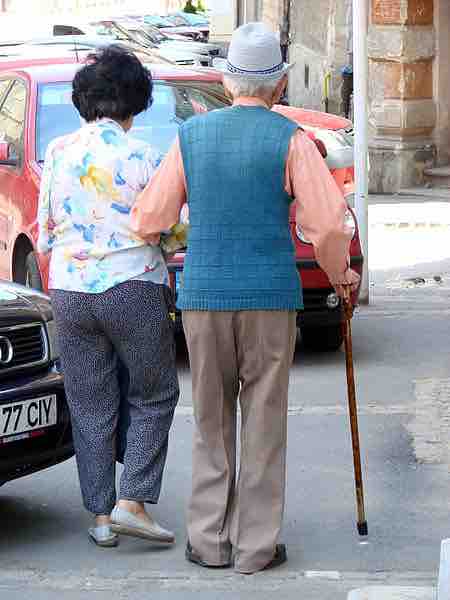How people view and perceive the aging process varies greatly from culture to culture. Depending on cultural norms, beliefs, and standards, aging can be seen as an undesirable phenomenon, reducing beauty and bringing one closer to death, or as an accumulation of wisdom and status worthy of respect. In some cases, numerical age is important (whether good or bad), whereas in other cases the stage in life that one has reached (adulthood, independence, marriage, retirement, career success) is deemed more important than numerical age.

Cultural views on aging
Depending on the culture, aging can be seen as an undesirable phenomenon or as an accumulation of wisdom and respect.
Aging and Ageism
Ageism (also spelled "agism") involves stereotyping and discriminating against individuals or groups on the basis of their age. The term was coined in 1969 by Robert Neil Butler to describe discrimination against seniors, and it operates similarly to the way that sexism and racism operate. Butler defined ageism as a combination of three connected elements: prejudicial attitudes toward older people, old age, and the aging process; discriminatory practices against older people; and institutional practices and policies that perpetuate stereotypes about elderly people.
Research on age-related attitudes in the United States consistently finds that negative attitudes exceed positive attitudes toward older people because of their looks and behavior. In his study Aging and Old Age, Posner (1997) discovered “resentment and disdain of older people” in American society. The stereotypes, discrimination, and devaluing of the elderly seen in ageism can have significant effects on the elderly, affecting their self-esteem, emotional well-being, and behavior. After repeatedly hearing the stereotype that older people are useless, older people may begin to feel like dependent, non-contributing members of society. They may start to perceive themselves in the same ways that others in society see them. Studies have also specifically shown that when older people hear these stereotypes about their supposed incompetence and uselessness, they perform worse on measures of competence and memory; in effect, these stereotypes become a self-fulfilling prophecy.
According to Cox, Abramson, Devine, and Hollon (2012), old age is a risk factor for depression caused by such prejudice. When people are prejudiced against the elderly and then become old themselves, their anti-elderly prejudice turns inward, causing depression. Research has found that people who hold more ageist attitudes or negative age-related stereotypes are more likely to face higher rates of depression as they get older. Old-age depression results in the over-65 population having one of the highest rates of suicide.
Eldercare
The form of eldercare provided varies greatly among countries and is changing rapidly. Even within the same country, regional differences exist with respect to care for the elderly, often depending on the resources available in a given community or area. However, it has been observed that globally the elderly consume the most health expenditures out of any other age group. Traditionally, eldercare was the responsibility of family members and was provided within an extended family home. Increasingly in U.S. society, eldercare is being provided by state or charitable institutions.
In developed countries such as the United States, nearly one million elderly citizens are helped by assisted living facilities. These facilities allow the elderly to keep a sense of independence while providing them with the care and supervision necessary to stay safe. Other elderly people are cared for by members of their family; however, eldercare in the United States is often viewed as a burden by family members who are busy living their own lives, making assisted living and respite-care facilities a commonly chosen option.
Cultural Views on Aging and Death
While countries like the United States and Japan focus more on independent care, Indian culture places greater emphasis on respect and family care for the elderly. In contrast to the United States, many countries view elderly citizens, especially men, in very high regard. Traditional values demand honor and respect for older people, who are considered to be wiser from experience. In China, several studies have noted the attitude of filial piety, or deference and respect to one's parents and ancestors in all things, as defining all other virtues.
People also perceive death, whether their own or that of others, based on the values of their culture. People in the United States tend to have strong resistance to the idea of their own death and strong emotional reactions of loss to the death of loved ones. Viewing death as a loss and something to be feared, as opposed to a natural or tranquil transition, is often considered normal in the United States.